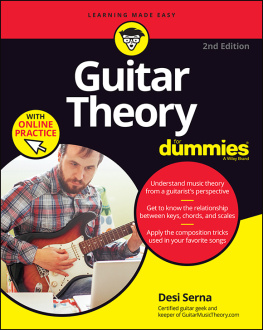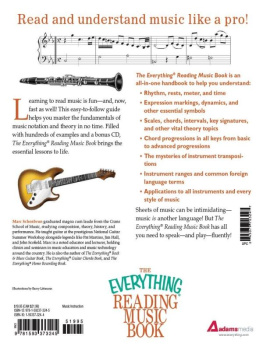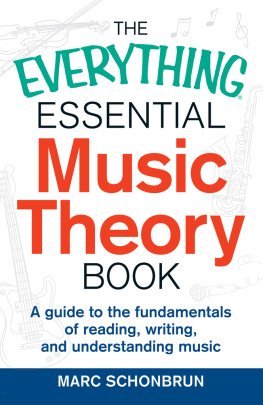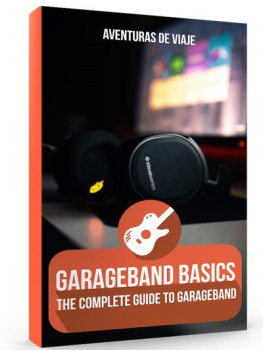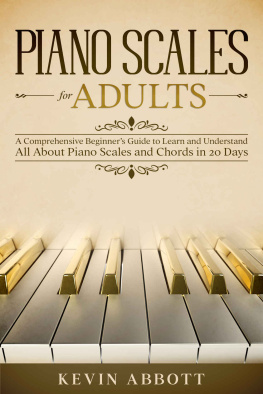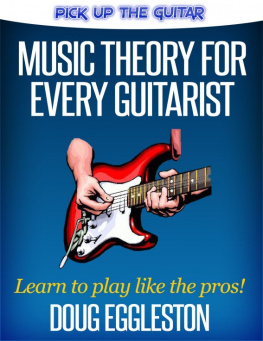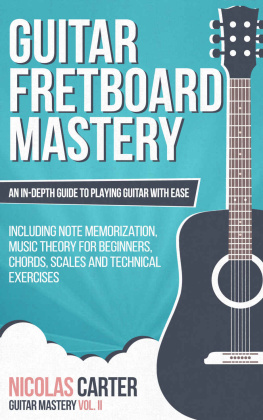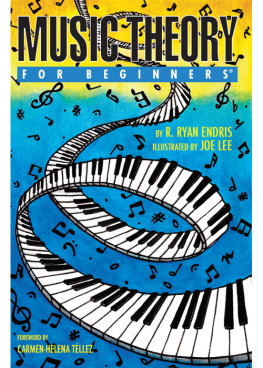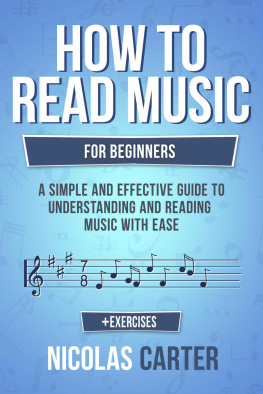INTRODUCTION
We all know music theory is the language of music. Thus music theory's terminologies are its vocabulary. In music theory this is how we communicate terms. And we may articulate a thought in our mind and put it on paper.
Say, you know what a triad is all about? Interval? An interval? As for an octave? If you're not so in this human race, you 're not alone in trying to play the guitar and missing the philosophy behind it.
Most self-educated guitarists advance by learning to play the guitar without knowing 10 percent of the terminology involved in learning to play the guitar. Many mates of mine know nothing more than the names of the simple guitar chords. Sure they can play the D(seven), F(minor) and even F(sharp) and they don't know the chord name. That's because they're learning from sources other than those requiring a music degree, like a friend who knows a piece of music and just learns to play it through sound and watch him play.
The most logical explanation for this is that they know more through sound than through thought. In theory, that sounds more advantageous than picking up a book and going through music theory pages and pages just to forget why you first picked the book. Music theory books may be misleading and may end up making you hate music theory or even theories in general.
Most tutored guitarists advance too with learning to play by the rules alone. Well, that's a good thing because they're learning it the right way but they get too attached to playing by the rules they forget or say they deprive themselves of the exceptions. There is no perfect theory. This would be a statute, or regulation, if it were. So exemptions are the inseparable other side of the coin when it comes to theories. There are hundreds of examples for all the hypotheses inside music. These exceptions are the ones that make music so unique and wonderful to learn.
I began to learn the guitar myself by watching my uncle's music. But once I got the hang of the basic playing techniques, I wanted to know more about this language and I realized that, technically, I did not know anything about playing. As I began to learn the names of chords and all that was around it, I realized there were thousands of terms related to music theory. So, I just chose some that I needed to practice to pass my guitar lessons along. This way I 'm going to get my head in the game and I'm not going to sink in the sea of music jargon.
Learning the terms is all about what you want to know about the music you are actually trying to learn. There's no point in studying words you don't use at the moment or that it might be useful for use in the future. It's always good to know more in advance, but it's best to learn them with an example to have a long-term effect on our memories. For example, if you want to learn a chord, say D(seven), you won't learn it simply by mugging the placements of your fingers. It may take hours of practice before it mixes in with you until you play that chord without looking at the fret of the guitar.
The same holds with all other musical words. It's not just about theory to learn music, it's about applying that music theory practice and practicing until it's on your fingertip. Next time there's a guitar in your hand and something in your head and you're left clueless, don't be afraid to dig in a music term! There is always a justification behind the word being called in this manner and behind it there is always a hypothesis involved.
CHAPTER ONE
Music Theory
Music theory is the philosophy of music. Yet unlike knowing a new dialect, it just isn't enough to speak. They've got to do it. Music theory is a research that helps one understand the music language. It is a compilation of rules and procedures used to understand the various ways of communicating strong emotions. Music theory also helps us to interpret musical compositions, communicate with other musicians and create or perform music with confidence.
Learning the basic theory of music is also important to stimulate creativity and to establish a deep sense of musical knowledge. It is a challenging but satisfying range of learning skills. Knowing how music works should ease the process of music creation and make you become a successful music maker. This basic guide to music theory looks at key signatures, pitches, intervals, scales, chords and other fundamental music. It also provides insight into the music's basic building blocks developing harmony, melody, and rhythm.
WHY MUSIC THEORY IS IMPORTANT
If you are beginning to pick up a musical instrument, you might have been advised to learn music theory, the study of music grammar. Music theory examines the elements that build a music piece, including notation, key signatures, time signatures, and progression of chords. Many teachers will insist that theory of music is a basic principle of balanced music education and may even include theory as part of their lessons.
Music theory is an essential component for learning the basics of music and being able to really outstanding in playing a musical instrument. Learning theory of music sets students on the right path to understand how music is written and how musical notes are interpreted.
Music theory teaches and helps students to comprehend the importance of notes, keys, scales, intervals, rhythm, melody, harmony, and more as it comes to playing an instrument. Read on for more information on the importance of music theory and why it is such an integral part of the music.
Understanding the Basics of Music
Art theory is the study of what art is, and how composers and musicians produce it. The philosophy of music is metaphysical and abstract but it is realistic as well. It is knowing whether lowering the third by semitone results in a minor chord or progression, which allows dissonant a note pairing, or how syncopated rhythms can be read and play. Music theory essentially enables students to understand why some things sound good to our ears and others do not. It provides the basics of playing and composing music.
All students have a certain ability to pick up melodies quite naturally, even without the theory's reference or understanding. You may be humming pleasant little ditties to yourself, you may be able to tap a steady drumbeat or you may even have perfect pitch. But most students in music need to have training and practice. Music theory provides a deeper understanding of the process behind composition through notes, scales, intervals, keys and why composition and sound are important to each component.
Know How Music Works
Music theory allows the students to understand how a piece of music works at its heart. When studying music, students can ask why a particular note was selected or what those strange symbols in a piece of sheet music represent. Fortunately, music theory lets students answer those and several other questions. A knowledge of intervals, scales, and keys can help students understand when notes are grouped together, or whether a sharp or flat makes sense in a given setting. Music theory can teach students who choose to perform in an orchestra or band where their role is in the group making it possible for them to play alongside other musicians. Whether they're jamming spontaneously in a shed or performing with an official band or ensemble, learning how recorded music works can make performing with unison with other musicians simpler.
Write and execute correctly
Although this is a point that is ignored in other courses in music theory, music theory will help your child become more imaginative with their playing (and maybe even elsewhere in life). Your child may not be interested in writing their music right now but having a strong music theory foundation will help set them up as a composer or songwriter for future success. If your child enjoys listening to classical music or repeatedly plays the Star Wars theme, these hobbies can be used as a way to let your child know how important music theory is for learning. Mozart and John Williams would not be household names, after all, without having a solid basis in the philosophy of music. Plus, as your child starts playing with other types of musicians, being well versed in music theory will help them detect everything from mistakes in playing with others to minor deviations from the score.


